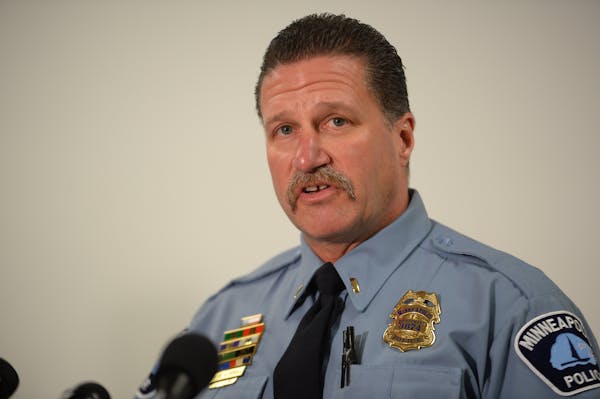The weather, the tight urban setting and the compact footprint of U.S. Bank Stadium make the 2018 Super Bowl the most complicated event in NFL history, the league's senior vice president for events Peter O'Reilly said Tuesday.
O'Reilly was among a contingent from the NFL and its partners in downtown Minneapolis for a week of meetings about the 10 days of events that begin in late January and culminate in the game on the night of Sunday, Feb. 4.
It will be the NFL's 52nd Super Bowl, but only the sixth to be played in a cold weather city.
"This is as complex a Super Bowl as we've ever had to plan and lay out," he said. "We've got lots of opportunities to do things differently."
While the Minnesota Super Bowl Host Committee oversees logistics for more than 100 venues during the week, the Super Bowl and everything that goes along with it is ultimately an NFL extravaganza. So O'Reilly and his extensive crew were on the ground to confirm locations, review logistics and consider contingencies for everything up to and including a snowstorm that throws down 36 inches.
"Everything is interdependent in Super Bowl world so every little detail is critical," O'Reilly said in an interview and tour of the volunteer headquarters with state host committee CEO Maureen Bausch.
O'Reilly said the NFL isn't ready to release locations of events, but he described the system as a hub-and-spoke, with the stadium being the hub to venues from the Mall of America to the Minneapolis Convention Center, St. Paul's RiverCentre and Nicollet Mall. "Clearly we spend a lot of time focused on the stadium and the stadium campus," he said.
Unlike most Super Bowl cities, including the last two games in the San Francisco Bay Area and Houston, U.S. Bank Stadium isn't surrounded by surface parking. It's tucked amid major arteries into and out of downtown Minneapolis, apartments and condominiums, parking ramps, restaurants and even a college. That means the NFL can't simply "draw a perimeter" and secure an area around the building for a week.
One aspect that will be new is satellite security checkpoints, meaning visitors will go through security at a location away from the stadium and/or certain venues. Organizers didn't want to release those details yet because of security concerns. The traffic management plan is one of the trickiest pieces for this game because people still have to get home and get to work in the days leading up to the game, Bausch said.
Absent being allowed into the daylong planning sessions, the scope and focus of the work is hard to grasp. One example O'Reilly provided is that the NFL will need to issue credentials for some 20,000 partners and their staff so they can work at various venues and events. Those are separate from the thousands of members of the media who will be in town.
"One of the biggest ways the Super Bowl has evolved is that the fan who doesn't have a ticket to the game ... can still feel close to the game," O'Reilly said. "That's the piece I take a lot of pride in."
Bausch said the host committee is working to coax regional visitors to Super Bowl events in the weekend before the game and the days leading up to it. One way they're doing it is by signing top-notch talent for the free concerts at Super Bowl Live on Nicollet Mall.
While Minnesota in the deep winter isn't a popular tourist destination, O'Reilly said he's confident the hospitality and events here will impress visitors. He noted the record number of volunteer applicants — 30,000 — the host committee secured.
"That has felt like a statewide embrace of the game," he said. "All of us can't wait to get here in January and feel that hospitality." He and NFL planners will return for a week in December and permanently set up in the Twin Cities in January. At the end of this week, O'Reilly said planners want to be able to return to New York headquarters confident in their ability to "deliver at a really high level an incredible Super Bowl in a place we haven't been for 26 years."
One thing he's not worried about: attendance for a game in Minnesota in February. O'Reilly said, "The power of the Super Bowl is pretty consistent and there will be demand."
Rochelle Olson • 612-673-1747
Twitter: @rochelleolson

Former Hopkins basketball star transferring from Michigan to U

Can things get better for the Wild after a disappointing season?
NBA Playoffs 2024: Before Game 1s on Saturday, a pair of Game 7-type matchups on Friday

